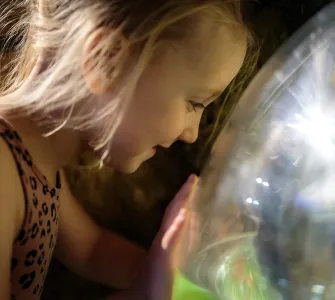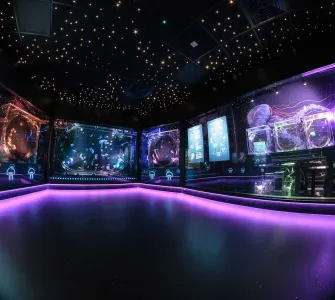Chaired by The Deep, the Jellyfish Focus Group is a collection of professional jellyfish Aquarists from the British and Irish Association of Zoos and Aquariums (BIAZA) with an overaching goal of increasing knowledge of jellyfish husbandry, sharing information and undertaking research projects.
Annually, Crew from The Deep are joined by several other jellyfish Aquarists from other BIAZA zoos and aquariums to carry out a research trip off the coast of Pembrokeshire. The aim is to find and take tissue samples from our native UK jellyfish species, allowing us in the future to study them more closely.
We have 6 main jellyfish species around the coast of the UK, along with several other ‘jelly-like’ animals. From each collected jellyfish, a very small sample of reproductive tissue is taken; this is harmless to the jellyfish and after the sample is taken, they are released back into the sea. Once back in the lab, each tissue sample is assessed to ascertain whether the jellyfish was male or female. The aim is to collect planula larva from each species (the 1st stage in the jellyfish lifecycle).
In some cases, the planula are already present within the tissue and we can simply collect it as it is released (a naturally occurring procedure). In other cases, we use a technique called in-vitro fertilisation. This involves introducing small samples of female and male tissue under sterile conditions. Because jellyfish broadcast spawn, their eggs are able to be fertilised mid water, much like corals and other similar animals.
Once back at our home aquariums, any planula collected from the research trips are settled into small containers where they will develop into jellyfish polyps (the jellyfish producing stage). A healthy population of polyps will live for many years and are able to reproduce asexually, which provides us with the opportunity to culture these jellyfish behind the scenes at The Deep.




